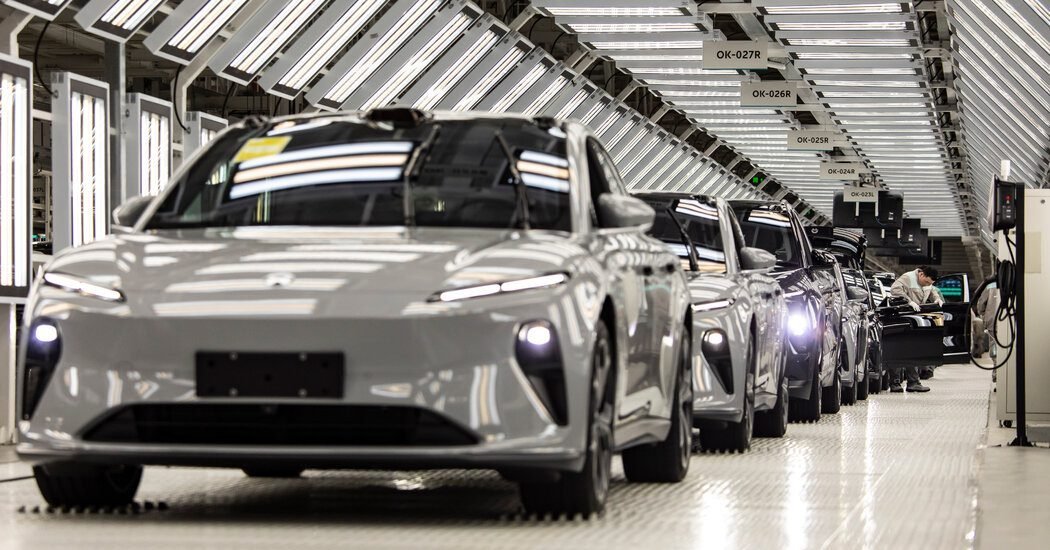DETROIT (Reuters) – The Biden administration’s plan to impose heavy new tariffs on Chinese electric vehicles (EVs) and batteries aims to protect U.S. auto jobs but may hinder efforts to accelerate the adoption of EVs in the United States, impacting climate change initiatives.
Immediate Impact on Consumers
Currently, few Chinese-made EVs are sold in the U.S., so the immediate effect on consumers will be minimal. However, the White House plans to more than triple tariffs on Chinese EV batteries and parts to 25%. This includes critical components such as graphite and permanent magnets used in EV motors, potentially affecting a broader range of vehicles.
Stricter EV Adoption Goals
In April, President Biden’s administration introduced tailpipe pollution standards to increase the share of electric vehicles from 8% last year to as much as 56% by 2032. However, automakers have raised concerns that achieving these targets will be challenging. One major hurdle is the restriction on federal subsidies for EVs with significant Chinese content.
Cost Implications for EVs
Automakers argue that without access to lower-cost batteries and materials from China, EVs will remain too expensive for mainstream U.S. consumers. In 2021, U.S. automakers exported 155,337 vehicles worth $6.3 billion to China, while China sent just 64,067 vehicles worth $1.45 billion to the U.S. Most Chinese-imported vehicles are sold under U.S. brands, like General Motors’ Buick division.
Read More: India’s election enters fourth phase as rhetoric over religion, inequality sharpens
Current Chinese-Made Vehicles in the U.S.
According to government data, four vehicle lines sold in the U.S. are made in China: Ford’s Lincoln Nautilus SUV, the Buick Envision SUV, the Polestar 2, and Volvo’s S90 sedans. Polestar and Volvo are affiliates of Chinese automaker Geely.
Potential Retaliatory Tariffs
Chinese retaliatory tariffs could impact workers at BMW’s factory in Spartanburg, South Carolina, and Mercedes-Benz’s SUV plant in Alabama. These plants export significant numbers of vehicles to China, the world’s largest automotive market.
The Cost of a Trade War
A trade war between the U.S. and China could increase the costs of EVs, batteries, and other components, keeping EV prices high. According to U.S. Transportation Department data, EVs like the Mustang Mach-E and Tesla Model 3 contain 30% to 51% Chinese content.
Industry Insights
Stella Li, head of Chinese EV and battery maker BYD’s operations in the Americas, stated, “From the battery, from the mining, from all the technology integration, the Chinese supply chain now is the leading supply chain. It’s the best. Why don’t you allow a U.S. company to have the freedom to choose the best supplier?”
EVs in the U.S. Presidential Race
Electric vehicles have become a central issue in the U.S. presidential race, symbolizing the debate over climate policy and responses to China’s technological advancements. Both Democrat Joe Biden and Republican Donald Trump support using tariffs and trade barriers to keep Chinese EV makers out of the U.S. market, appealing to voters in key swing states like Michigan, Wisconsin, and Pennsylvania, which rely heavily on manufacturing jobs.















